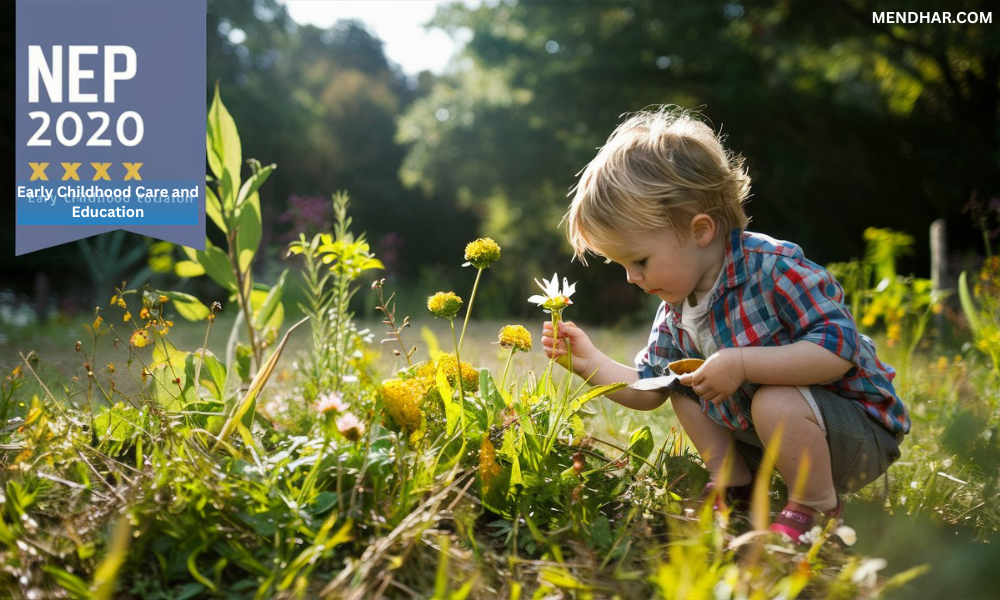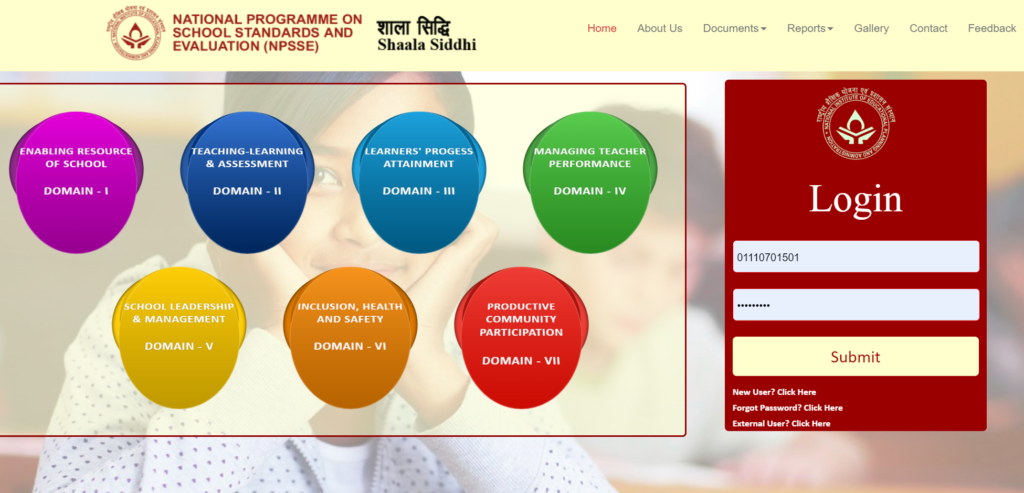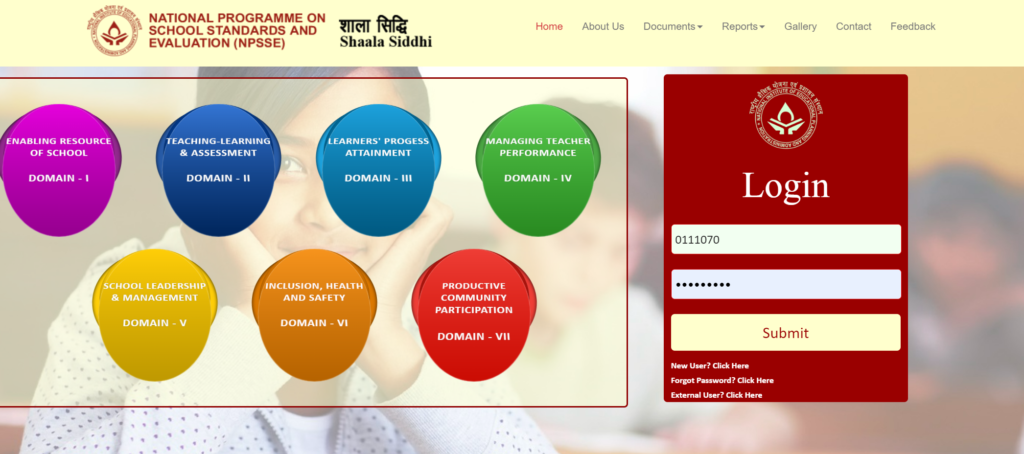A Guide to Early Childhood Care and Education According to NEP 2020:

INTRODUCTION:
The National Education Policy (NEP) of 2020 lays down a comprehensive framework for transforming the education landscape of India, with a significant focus on Early Childhood Care and Education (ECCE). This crucial stage, spanning from ages 3 to 8, forms the foundation of a child’s learning journey, shaping their cognitive, social, emotional, and physical development. In this guide, we will delve into the specific goals outlined in NEP 2020 for ECCE, as well as the guiding principles for the Foundational Stage, aiming to nurture every child’s potential through quality education and care.
Achieving Universal Provisioning of Quality ECCE:
Achieving universal provisioning of quality ECCE requires a multi-faceted approach. Firstly, it involves expanding access to ECCE programs, including preschools, anganwadis, and other early learning centers, particularly in underserved and marginalized communities. This expansion should prioritize areas with high concentrations of disadvantaged populations, such as rural and remote regions, urban slums, and tribal areas.
Moreover, ensuring quality in ECCE programs is paramount. This entails implementing evidence-based practices that promote holistic child development, such as play-based learning, child-centered pedagogies, and integrated curricula focusing on cognitive, socio-emotional, physical, and linguistic domains. Quality assurance mechanisms, including teacher training, curriculum standards, and monitoring and evaluation frameworks, are essential to uphold standards and improve program effectiveness.

Attainment of Optimal Outcomes: The policy sets clear objectives for children’s holistic development, focusing on physical, cognitive, socio-emotional, cultural/artistic, and communication skills. These outcomes serve as benchmarks to ensure that every child reaches their full potential across various domains.
Institutionalization of Play-Based Learning: NEP 2020 advocates for a flexible, multi-faceted approach to learning, rooted in play-based methodologies. This includes activities ranging from language and numeracy to arts, crafts, and outdoor play. Such an approach not only fosters academic skills but also nurtures social capacities and ethical values.
Guiding Principles for the Foundational Stage: The Foundational Stage, spanning from age 3 to 8, is guided by principles that recognize the uniqueness of each child’s learning journey. From acknowledging children as natural researchers to emphasizing the role of play and activity, these principles lay the groundwork for effective ECCE.
| Principle | Description |
|---|---|
| Every child is capable of learning | Regardless of background, every child has the potential to learn and grow. |
| Each child learns at their own pace | Recognizing the individuality of children’s learning trajectories. |
| Children are natural researchers | Encouraging curiosity and exploration as integral to learning. |
| Learning through observation and collaboration | Emphasizing social interactions and concrete experiences in learning. |
| Respect for children’s experiences | Valuing children’s perspectives and involvement in the learning process. |
| Play and activity as primary learning modes | Recognizing the importance of hands-on experiences in learning and development. |
| Developmentally and culturally appropriate content | Ensuring that learning materials resonate with children’s experiences and backgrounds. |
| Equity in education | Addressing disparities based on gender, caste, class, and disability in education. |
| Teacher’s role as facilitator | Supporting children’s learning through open-ended questioning and scaffolding. |
| Family and community involvement | Engaging families and communities as partners in children’s education. |
| Emotional aspect of learning | Acknowledging the role of emotions in the learning process and fostering a caring environment. |
Conclusion: In conclusion, NEP 2020 lays a strong foundation for quality Early Childhood Care and Education by outlining specific goals and guiding principles for the Foundational Stage. By prioritizing play-based learning, individualized approaches, and inclusive practices, the policy aims to unlock every child’s potential and prepare them for lifelong learning. Let’s embrace these principles to create a nurturing environment where every child can thrive.

Frequently Asked Questions (FAQ) about Early Childhood Care and Education According to NEP 2020:
What is Early Childhood Care and Education (ECCE) according to NEP 2020?
- ECCE, as per NEP 2020, encompasses the holistic development of children from ages 3 to 8, focusing on cognitive, socio-emotional, linguistic, and physical domains through play-based learning.
What are the specific goals of ECCE outlined in NEP 2020?
- NEP 2020 aims to achieve universal provisioning of quality ECCE, ensure optimal outcomes in various developmental domains, and institutionalize flexible, play-based learning methodologies.
What is the Foundational Stage, and what does it entail?
- The Foundational Stage spans from age 3 to 8 and comprises five years of flexible, multilevel, play, and activity-based learning. It serves as the bedrock for future academic success and lifelong learning.
What are the guiding principles for the Foundational Stage according to NEP 2020?
- The guiding principles include recognizing every child’s potential, acknowledging individual differences in learning, valuing play and activity as primary modes of learning, and fostering equity, inclusivity, and emotional well-being.
How does NEP 2020 emphasize the role of play in ECCE?
- NEP 2020 advocates for a play-based approach to learning, where children engage in activities such as storytelling, art, music, and outdoor play to develop cognitive, social, and emotional skills in a natural and enjoyable manner.
What is the significance of family and community involvement in ECCE according to NEP 2020?
- NEP 2020 recognizes the importance of family and community as partners in children’s education. Involving families and communities fosters a supportive learning environment and enhances children’s holistic development.
How does NEP 2020 address equity and inclusivity in ECCE?
- NEP 2020 emphasizes addressing disparities based on gender, caste, class, and disability to ensure equitable access to quality ECCE for all children. It promotes inclusive practices that cater to the diverse needs of learners.
- You might be interested to read!
- RELATED ARTICLES:




Pingback: New Curriculum Framework for 3 to 6-Year-Olds -